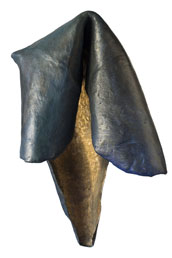Pages: 1 2 3 4 5 6 7 8 9 10 11 12 13 14 15 16 17
Sister to Courage: Stories from the World of Viola Desmond, Canada’s Rosa Parks
by Wanda Robson
Nova Scotia: Breton Books, 2010
When the late and mighty tribune of liberty and equality, Dr. Carrie Best, of New Glasgow, Nova Scotia, published her autobiography, That Lonesome Road, in 1977, she served to inaugurate a tradition of such works by African-Nova Scotian (or Africadian) women, with the late Verna Thomas’s Invisible Shadows (2001) adding another example.
These memoirs tell of struggles and victories, but more significant is their use of Africadian English. It appears, only surreptitiously, in Best and Thomas, but is a crucial beauty in Wanda Robson’s Sister to Courage: Stories from the World of Viola Desmond, Canada’s Rosa Parks, and Dorothy Proctor’s Chameleon: The Lives of Dorothy Proctor
Both Robson and Proctor author ‘as-told-to’ books, and Proctor’s amanuensis, Fred Rosen, is credited as a co-author of Chameleon. Bottom line: Both books possess a direct, vivid, oral quality, though their content is starkly different. Robson tells of her own life while recalling that of her heroic sister, Viola Desmond, who was jailed in 1946 for violating a subtle apartheid law in a New Glasgow, NS, theatre. In contrast, Proctor, who was born into her mother’s Cape Breton brothel, rose from being a child-abuse victim to a sly criminal to becoming a smart, tough, undercover, police operative.
In her memoir, Robson relates, primarily, her own life story, though she also focuses on her sister Viola Desmond’s effort to build an African-Canadian beauty-products line and business, and then her subsequent – accidental – stand for human rights.
Still, the main theme is survival. When Robson (née Davis) is born in 1926, she is the unwitting observer of the death of an elder sister, only eight days later: On Christmas Eve, “the living room in front had a bare, undecorated Christmas tree and little children playing, waiting for Santa; and in the parlour on the other side of these doors, my parents were preparing the body of their daughter Dorothy, who had just died.”
Robson’s Baptist mother would not openly allow “trashy, pulpy magazines” or “playing cards” in her home, but still developed a notable crush on screen idol Clark Gable: “Women were wild about him…. Was it his muscular chest, was it his broad shoulders, was it his patent leather hair, was it that crooked smile he had – that deadly crooked smile – was it that neat moustache, or was it his ears? Because some women found those large ears cute.” Recalling her sister’s defiance of New Glasgow’s Roseland Theatre and its racist ticket-pricing, Robson stresses the spontaneity of Viola’s protest and its roots in her sister’s need to sit in a place where she could see the screen comfortably.
Ultimately, a manager and a constable dragged the 96-pound Viola from the cinema: “And she said, ‘I just sort of went limp, because I wasn’t going to make it easy for them.’ And then, she said, one shoe dragged off, and she dropped her purse. And one woman … ran up behind her and gave her her purse, and put her shoe up on top of the purse.” Convicted of defrauding the province of 1¢ in tax (the difference between a whites-only ticket and a blacks-only ticket), Desmond spent a night in jail and paid a $20 fine. She later lost a Supreme Court of Nova Scotia appeal. Dispirited by this outcome, Desmond soon abandoned her hitherto successful business. When she died in 1966, not one obituary mentioned her civil rights activism.
When Her Honour Mayann Francis, the Lieutenant-Governor of Nova Scotia, granted Desmond a posthumous pardon last year, Robson was elated, but also writes, “I think of Viola almost every day, perhaps more now than ever. And I see her on the (New York City) apartment floor, dying alone, fifty years of age, still full of plans. A terrible and undeserved end.”





No Comments so far ↓
There are no comments yet...Kick things off by filling out the form below.